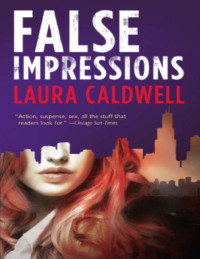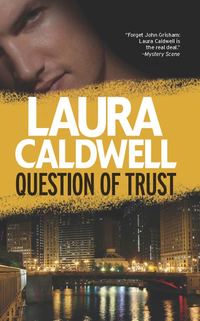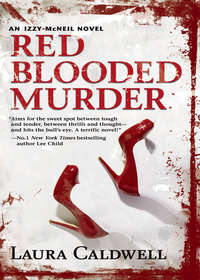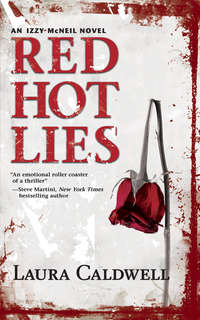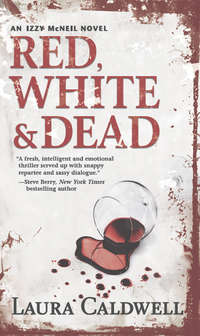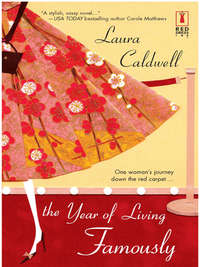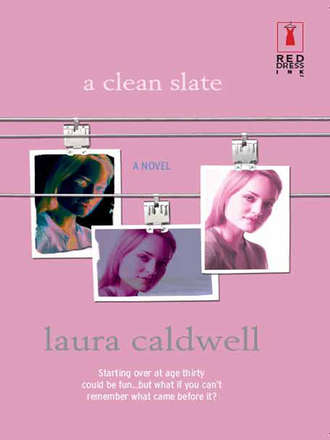
Полная версия
A Clean Slate
“Sure,” Ben said, “I was just updating Kelly on what’s going on at Bartley.”
“Great. Did you tell her that you made partner?”
Ben sent a quick, guilty look in my direction.
My good mood, my ease at talking to Ben, evaporated like steam. “What? When?”
“Last week,” Therese bragged.
I fought hard not to smack her.
“Is that true?” I said to Ben. I was the one who was supposed to make partner first. Me. Ben had started at Bartley two years after me. I was next in line. How had I gotten the ax while he was elected to goddamn partnership status? I felt my neck go red.
Ben nodded sheepishly.
“He deserves it,” Therese said. “He’s worked really hard and—”
“Excuse me,” I said. “Could you shut up for one minute?”
Her eyes narrowed, and she sent a glance at Ben as if to say, Are you going to let her talk to me like that?
“Kell,” he said. “Take it easy. It just happened. I didn’t even know it was coming.”
Something about the way he had said that, the way his words got incrementally softer at the end of the sentence and the way his mouth became tight, told me that he had damn well known it was coming. He probably knew back in May. For a horrified moment, I wondered if he’d known that I was going to be fired, too. I stood there, completely stumped for words, wishing my temper would take over and do something rash that I would later regret—something like head-butting Ben—but nothing came. Finally, Therese tugged on his sleeve.
He drained the rest of his beer. “I’m sorry, Kell. Good to see you.”
I searched my brain for a witty comeback, something that would erase the smirk from Therese’s face, but once again I came up blank. A pregnant quiet enveloped us.
“Ben, let’s go,” Therese said.
He hesitated, still standing before me as if he might say something else.
“Oh, please,” Therese said, before he got the chance. She clamped a hand on his arm and dragged him away.
When they reached the door, Therese disappeared through it, but Ben turned around and for the longest moment held my eyes.
My temper flared after Ben left, obviously the wrong time, but I was immune to a cure, and so I sat at the bar, boring poor Jess and Steve and Laney about the manipulative machinations of Bartley Brothers and the treachery of Ben, all the while trying to douse my anger with cocktails. Laney eventually wrenched the conversation away from me and back to Jess and Steve’s wedding, and they were happy to prattle on about place settings and invitations and the band vs. DJ debate until we got the “last call” shout from the bartender.
After Tarringtons closed, and Laney had convinced me that no convenience store in the city sold margarita mix, she and I lay snug in her king-size bed, gossiping maliciously about Therese, giggling about Ben not recognizing me, and rehashing—at least fifty times—my conversation with him. Although still pissed off about him being made partner ahead of me, about him possibly knowing that I would be fired, I felt much better now that I’d gotten my dose of rage. And oddly enough, I felt a tipsy contentment around me. It’d been eons since Laney and I had had a late-night chat like this, a fact that made me sad. It was Laney who’d been with me every step of the way though the traumas of high school, the newfound freedom of college and the often painful days of early adulthood, and yet it was Ben I’d ended up spending so much time with. Ben, who’d eventually decided that the time meant nothing.
“He is such a fucker,” I said, the margaritas making my tongue loose, causing me to repeat myself over and over.
Laney gave me a light smack on the arm. “Stop already. It’s unhealthy. Let’s talk about something else.”
“Name it.”
“Are you sure you’re all right with this no-memory thing? I mean, you’ve had a lot going on today, and it’s all right to fall apart.”
I turned on my side to face her. “I feel better than I ever have.”
“Well, don’t think that you have to put on a tough act. You can still fall apart if you want.”
“Nope. I’ve done enough of that.”
Laney was silent for a second, and I could hear the whoosh of cars passing by her building. “It’s just that something was definitely wrong. Something more than Ben and the job,” she said.
“It was obviously something that didn’t matter.”
“Maybe.”
Her tone made me feel a little chilly, and I buried myself deeper under her duvet. What was it that I hadn’t told anyone? Did it matter now? On one hand, if whatever it was could explain why I couldn’t remember this summer, I wanted to know it. For some reason, I truly wanted to learn why this odd memory loss had happened to me. But on the other hand, if I remembered those five months, wouldn’t I just slip back into that depression? I wanted the whys and the hows of the situation, but I feared the details. I felt as if my memory was a house of cards, wobbly and shaky and hollow inside. I was afraid that if I came too close to that emptiness, that missing time, everything would fall in on me.
“Look, Lane,” I said, “I’ve already spent too much time on whatever it was, and maybe that’s why I feel so good now, because I let myself be depressed until I couldn’t be depressed anymore.”
“Shouldn’t you try to figure out more about what was going on with you during that time? I could help you, you know. We could go talk to Ellen or somebody, maybe do some research.” Laney’s voice sounded so sweet, so helpful and slightly worried, and it made me tremble a little inside.
I squeezed her arm, as much to reassure her as myself. “It’s okay. As far as I can tell, nothing good happened during those months, right?”
“Right,” she said, a hint of doubt lingering in her voice.
“Right.” I rolled over, turning my back to her. “And what you don’t know can’t hurt you.”
6
On Sunday, I suffered an intense headache. I usually didn’t feel so bad after a night of drinking, but I probably hadn’t been drinking much for five months. I tried not to think about the headaches Laney had told me about, the ones I suffered during those months I was holed up in my apartment.
After Laney plied me with ibuprofen, she and I joined Gear and the rest of his High Gear band to watch the Bears game at a little corner pub. I’m not sure what I expected of Laney’s latest boyfriend—maybe heroin at halftime?—but he wasn’t exactly the stereotypical dude in a heavy metal band. Oh sure, he had the requisite tattoos on his arms (barbed wire on the right, some Chinese lettering on the left) and he wore a ripped black T-shirt and black army boots, but Gear was warm and friendly, too, which surprised me.
“So this is the infamous Kelly,” he said when Laney introduced us.
“Infamous? I hope that’s a good thing.” I held out my hand, but he pulled me into a hug. He smelled like shaving cream and cigarettes.
“You’re infamous because Laney Bug is always talking about you.”
“Laney Bug?” I looked over my shoulder at Laney, who groaned a little, probably realizing that she would never be able to live down this nickname. I could almost see us at age ninety, me taunting her, Oh Laney Bug, can you bring me my tea, please?
The rest of Gear’s band weren’t quite as outgoing or sweet, but we spent a happy afternoon with them eating pizza, watching football and screaming at the TV when the Bears messed up. I drank a few beers in a hair-of-the-dog effort, and didn’t think about anything else for hours—not Ben or my town house or my lack of employment.
Monday morning, I rolled over in Laney’s bed and stretched, feeling, once again, intensely headachy from the alcohol. Apparently, I couldn’t hold my liquor like I used to. I heard the hum of Laney’s hair dryer from the bathroom, followed by the clatter of makeup on the tile floor and Laney’s curse.
“You okay in there, Laney Bug?” I yelled, stretching my legs under her comfy duvet.
“Late,” she called back, ignoring my use of her new nickname. “Totally late.”
A second later, she tore out of the bathroom, yanked open her closet and stepped into a pair of shoes.
“What time did you get up?” I asked.
“Six.”
I turned and squinted at her bedside clock. It was eight-thirty. “And what have you been doing?”
“Answered e-mail, did a Tae-Bo tape, returned a few phone calls.”
“Okay, now I feel like a lazy ass.”
“You need to take it easy.” She picked up her purse by the bedside and squeezed my shoulder. “Stay as long as you want, all right? And call me at work if you need anything.”
“Thanks.” I watched her run into the kitchen and grab an apple out of a bowl. “Have a good day!” I called, but she was already out the door.
With Laney gone, the apartment seemed empty and vast. I swallowed some Advil, then took one of the books from her shelf, a memoir about a woman who’d followed the Grateful Dead. I figured that maybe I’d lie in bed all day and read. The book wasn’t that interesting, though, at least not after the first three acid trips, and within an hour I was antsy. I knew I should probably go back to my own apartment, but the thought brought only a queasy feeling.
To thank Laney for everything she’d done for me lately, I ignored the pain in my head and the nausea in my stomach and cleaned up her place. Then I made myself a bowl of granola and decided I’d just spend a lazy day in front of the TV.
The first few hours went okay, especially after my headache eased. I watched the news and business stations, trying to catch up on the market, studying the Bloomberg as I used to for the ticker symbols that signaled the retail stocks. There were a couple of surprises, a few stocks that were way higher than when I’d followed them, and I found myself analyzing the rest of the market and how it might affect these companies. After a while, though, I didn’t care all that much. It was a relief just to flip the channel.
Next, I tried the talk shows and the soaps, which kept my interest for a whole forty minutes. What, exactly, was I going to do with the rest of my day? A better question—what had I done when I was home for five months? I couldn’t fathom it.
A thought came to me. Laney had said that I had more than enough money to live on because of the severance pay from Bartley Brothers and the sale of my town house. But what if I’d somehow spent that money during those five months? Laney had assumed I was holed up in that high-rise, but what if I’d actually been blowing the cash on God-knows-what, maybe a sailboat or a Porsche for Ben or a diamond engagement ring for myself?
I found Laney’s cordless phone, dialing the number for my bank’s automated system. Leaning against the kitchen fridge, I punched in my social security number, relieved that I remembered it, then my banking code, which came just as easily. A second later, an inflectionless voice informed me that I had a nice chunk of money in my account, more than I’d ever had at one time. Laney had been right, after all. I hadn’t blown it. I didn’t have to work right now if I didn’t want to.
But what did people do if they didn’t work? I put the phone on the counter with a clunk. Most women I knew who were officially unemployed were unofficially working their asses off in their own homes, raising their kids. I didn’t have kids, obviously. Wasn’t even on the path to eventual children. So what to do?
I could do anything I wanted with my life, I realized. It was mine to shape. I suppose that had always been true, but before, I’d felt the invisible constraints of the need for money, or my relationship with Ben, or the partnership track I thought I was on. Yet none of those concerns existed anymore.
My life was a clean slate. What did I want to do with it?
I found a pad of paper in Laney’s desk and settled on the couch again. “New Possible Careers,” I wrote at the top. I sat there for a full five minutes staring at the paper. Why wasn’t anything coming to me? Anything, I told myself, write anything that comes to mind. I shook my hand to relax it and scribbled the following list:
Journalist
Clothing Store Owner
Music Video Dancer
Ambassador to France
A good list, excellent really. These were the jobs that I’d always thought so glamorous and cool. I could almost see myself as a political journalist, a pen tucked behind one ear, the president at the podium, pointing to me and saying, “Kelly,” because of course I’d know the president. The problem was that in reality I had no writing skills to speak of and it probably took twenty years of hard-core newspaper journalism to get on the White House beat.
All the other possible careers I’d listed had impediments, too. I’d love to have my own clothing store, to be able to change outfits in the middle of the day just because I could, but I knew that owning a store was a massive amount of hard work. And as much as I’d been interested in the retail stocks and my own shopping, I really couldn’t envision myself standing in the same shop day after day.
As for the music video career, well, I couldn’t imagine what would be more fun than wearing a don’t-fuck-with-me face and shaking my thing behind J. Lo or whoever, but I could dance about as well as I could remember the last five months. Ditto for the ambassador to France gig. I couldn’t speak French.
I crossed out the list and tore the paper off, giving myself a fresh sheet. I would concentrate on the things that I could do, the activities that truly gave me pleasure, whether or not they could lead to a career.
The thing that came immediately out of the pen was “Photography.” Ever since my stepfather, Danny, had given me that Nikon, a gift I later heard my mother say was “probably hot,” I’d loved taking pictures. As a kid, it was something to do, something to play around with, a way to let myself be part of a crowd while still hiding behind the safety of a lens. As I got older, I realized that I was a natural at it. I could study the light on a sidewalk and realize how it would appear as a pattern in a black-and-white photo, and I knew how to take portraits from different ranges and angles to make the subject appear more studious or glamorous or thoughtful. Ben had even given me classes at a local university as a gift, and for the last few years I’d been taking them weekly. Was I still taking those classes?
I made a note to follow up on this issue, then wrote, “Shopping.” Definitely one of my great loves, something I’d already made into a career of sorts, but I wasn’t a retail analyst anymore, and I’d already done enough shopping on Saturday. I could probably get an analyst job at another investment firm—I knew enough people in the business; I could work my way up again—and eventually I’d be a partner somewhere else, just like Ben. Yet, even as I thought this, the realization came to me that I didn’t have to work right now, and that knowledge took away all my drive to be in the market again. Maybe I’d never had the drive, or I’d only been driven by money.
What else? I lowered my pen and scribbled, “Walking.” I wasn’t much of a runner. I hated the way my breath came ragged and hard when I tried jogging, but I loved to walk. Again, I couldn’t imagine why I had holed myself up in my apartment during an entire summer in Chicago, a city that was made for walking along the lake and through the zoo and down the Mag Mile. That’s what I would do today, I decided. I’d take a huge walk.
But first I wanted to finish my list. What else, what else? It came to me, the answer, but I had a hard time putting it on paper. Finally, I wrote in small letters, so fine that you could barely read them—“Family.” My mom had given me the best life she could muster, but it was one filled with random men, alternating cities and a series of small apartments. For as long as I could remember, I’d been jealous of the typical family—the husband and wife in the country with the 2.5 kids—and I’d sworn I’d get that for myself someday. And so I’d always been concerned about the ticking of my so-called biological clock (although to be truthful I couldn’t hear a peep), pointing out to Ben time and again that if we were going to get married and have kids, we had to do it soon—a belief that led, in part, to the ultimatum I’d given him. But now I didn’t really have any family at all. Dee was gone in an instant, in a tangle of metal and rubber on the Dan Ryan Expressway, and Ben was gone now, too. And the children I was supposed to have one day? Far, far away.
My mom was still around, of course, but she and I had been family in name only since Dee had died. We’d handled Dee’s death differently, to say the least. Me, well, I had my tantrums, my not-so-occasional flashes of anger when I tossed picture frames and broke dishes. Ben, after quietly watching me shatter more than half of my Pottery Barn bowls, had bought me a big brown candle and taken me into the bathroom one day.
“Throw it,” he had said, opening the shower curtain and pointing to the wall inside the tub.
“What?” I looked from the candle to Ben and back again, irritated at this cryptic directive.
“Look.” He took the candle from my hand, hurling it at the wall. It bounced off, a mere dent in the brown wax. “See? You can throw it and smash it. Do whatever you want, but it won’t break.”
“I want it to break.”
“No, you don’t.” He kissed the top of my head. “You just want the feeling.”
He was right. I turned to that candle often. I threw it against the bathtub wall over and over until the wall was splotched brown and the candle beaten into a misshapen lump. And one day I put the candle away, tucked it far under the sink, just in case. But I hadn’t needed it anymore.
My mom, on the other hand, broke nothing, smashed nothing. She’d seemed to shut down after the accident. She didn’t want to talk about it, she said. She wanted to leave Chicago and forget. And so off to L.A. she went, only one month after the funeral, and without Dee’s death to talk about, all our conversations felt like disingenuous, twenty-first-century versions of the “Emperor’s New Clothes.” They were five-minute chats we both looked forward to ending. I had no idea when I’d last spoken to her.
I looked down at my watch. Right now, Sylvie Custer was probably at her desk on the set of The Biz, an entertainment “news” show that reported on the minutiae of celebrity activity—“Tom Cruise considers sideburns! Tonight on The Biz!”
I called information to get the general number, and the receptionist routed me through to my mom’s desk. She answered with a crisp, “Sylvie Custer.”
“Mom, it’s me.”
A little stretch of silence followed, and I knew what had happened. She’d been taken by surprise, and she’d thought for a moment it was Dee.
“Kelly,” I said in a softer voice.
“Hi, honey. How are you?” Her words were mothering, but her tone slightly formal. It was the way we talked to each other now.
“I’m okay. You?”
“Crazy over here. Some starlet got arrested for shoplifting a pack of gum, and I’m trying to convince the LAPD to release her name. Meanwhile Mella, that Swedish fashion model—you know her?”
She made it sound as if I might have had martinis with Mella last night. “Vaguely,” I said.
“Well, she’s gained a few pounds, so I need a quote from the restaurant near her apartment.”
I listened to some more Hollywood gossip, wondering how my mom could do it. She used to produce news segments on political corruption, double murders and Middle East violence, and now here she was, digging up info on Mella’s calorie count.
“So how’s Ben?” my mom said in a swift topic shift, and I wondered, frantically, if I’d told her anything about our breakup. It didn’t sound like it. I half wanted to tell her about my memory gap, but I didn’t want to give her any more worries. I honestly didn’t know if she could handle it, and it had been so long since I’d confided in her. And I was fine, wasn’t I? Better than fine, actually. I’d admit to the breakup, I decided. I couldn’t hide that, but I wouldn’t mention the memory issues.
“Ben?” I said. “Well, you know we broke up, right?”
“What?”
Okay, she definitely hadn’t known that, which either meant that I hadn’t spoken to her for a long time or I’d avoided talking to her about that subject. It didn’t surprise me, really. Our phone calls since Dee died were so few and so brief.
“What happened?” my mom said.
Great question. “He didn’t want to get married.” That was the simplest, most truthful answer I could deduce. I’d given him the dreaded ultimatum, the give-me-a-ring-or-I’ll-walk speech, and it’d slapped me right in the face.
“Oh, honey, are you all right?” I could hear that anguished, parental tone in her voice, the one that made me feel warm and taken care of, but it scared me a little, too. I was always worried that she was close to a breakdown after Dee, and even now I wasn’t sure what would make her snap.
Конец ознакомительного фрагмента.
Текст предоставлен ООО «ЛитРес».
Прочитайте эту книгу целиком, купив полную легальную версию на ЛитРес.
Безопасно оплатить книгу можно банковской картой Visa, MasterCard, Maestro, со счета мобильного телефона, с платежного терминала, в салоне МТС или Связной, через PayPal, WebMoney, Яндекс.Деньги, QIWI Кошелек, бонусными картами или другим удобным Вам способом.




